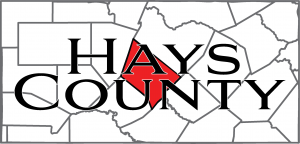Staff report
A Houston-based water firm that applied for a permit with the Barton Springs Edwards Aquifer Conservation District (BSEACD) to obtain water from the Trinity Aquifer will soon conduct an aquifer test.
According to a BSEACD release, Electro Purification (EP) has submitted an aquifer test work plan and descriptive statements to conduct a formal aquifer test that will be used to support future production.
District staff is completing the review of the EP Test Well Applications, which were submitted March 15. The deadline for administrative completeness of the application is Sept. 11.
EP, which currently has six test wells constructed, is proposing to test three of those wells for approximately five days each, according to the release.
The overall test will be conducted at a rate to support a future production volume of 2.5 million gallons per day. Prior to testing, the three test wells will be developed, then equipped, with temporary instrumentation, packers and pumps that isolate the target production zone, which is in the Cow Creek formation of the Trinity Aquifer.
BSEACD staff will coordinate with EP to monitor approximately 20 wells surrounding the pumping wells, according to the release.
The chosen monitor wells vary in location and in aquifer zone completion.
Water levels will be monitored before, during and after the well is pumped to measure baseline aquifer conditions, drawdown and recovery, respectively, the release said.
BSEACD staff will make spot measurements at additional key wells and the applicant will monitor the three other EP test wells, in order to augment seven district continuous monitor sites.
EP, according to the release, has worked closely with district staff to develop a plan that meets its requirements.
Test results will be analyzed by BSEACD staff and will be evaluated through future hydrogeological reports and analysis. According to the release, results from the aquifer test will be used to inform a production permit decision.
The aquifer test comes after EP in October 2015 filed a temporary permit with the BSEACD following the passage of House Bill 3405 in 2015. The legislation, sponsored by State Representative Jason Issac (R-Dripping Springs), extended the district’s boundaries to include “white zones,” or unregulated portions, of the Trinity.
The legislation was filed following the Hays County water wars of 2015, where residents opposed EP’s project to develop a water field in what was an unregulated part of the Trinity Aquifer.





